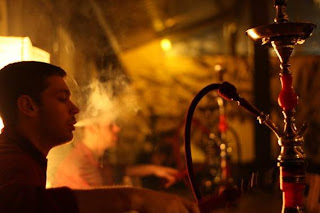
A rainbow of fruit-flavored blunts, cigars and cigarillos line the shelves behind the counter at the Eustis Mobil convenience store on U.S. Highway 441.
Tobacco users have their pick: apple, grape, peach and more. But a movement is gaining steam across the state against flavored tobacco. Local officials argue the candylike taste and shiny, colorful wrappers are meant to attract children and get them hooked on tobacco products.
About 100 resolutions — including several in Central Florida — have been adopted across the state, urging businesses to stop selling fruit- and liqueur-flavored tobacco, including cigars, chew and snuff.
"Youth perceive these products as safe because of the candy flavor," said Dr. Bonnie Sorensen, director of the Volusia County Health Department.
Although flavored products look "benign," Sorensen warned they're as addictive as regular cigarettes. As part of the movement against flavored tobacco, she has talked to public officials in several Volusia cities, including Port Orange, which has passed a resolution asking businesses to quit selling it. Kissimmee, St. Cloud and Lake Mary have also passed resolutions.
Lake County this month became the latest Central Florida government to join the effort after Health Department officials cited a 2010 survey that found one in five middle- and high-school students reported using flavored tobacco. Of more than 40 convenience stores examined, health officials said all were carrying flavored tobacco products.
In Orange, more than 150 stores were surveyed, and all carried a variety of flavored tobacco, said Mary Petiprin, tobacco-prevention specialist with the county's Health Department. One in six kids from 11 to 17 reported using flavored tobacco, which they get from older teens, Petiprin said. She plans to approach city and county officials about adopting the resolution in a month or two. Osceola Health Department officials are working with county officials on a similar resolution.
Flavored cigars have been around for years. However, dozens of new flavors have been introduced into the market, Sorensen said. Tobacco pellets that resemble Tic Tac mints and nicotine-laced toothpicks also are available, she said. Many of these products have been creeping into local neighborhood convenience stores in the past two to three years, Sorensen said.
Tobacco pellets and snus, a form of smokeless tobacco, are produced by R.J. Reynolds Tobacco Co. but are not targeted to children, said John Singleton, communications director of the parent company, Reynolds American Inc. He said R.J. Reynolds, the second-largest cigarette maker in the U.S., is working with middle schools nationwide to prevent kids from smoking.
"We're aligned with the purpose of this effort," Singleton said. "We have a different way of going about it, though."
State and local officials should be working on enforcing laws that prohibit minors from smoking and imposing stricter punishment for people who sell or provide kids with tobacco rather than ban flavored tobacco, Singleton said.
Others also question the need for resolutions, which have no teeth. Local officials can't outlaw tobacco in their communities, so they're at the mercy of retailers to snuff out flavored products. TheU.S. Food and Drug Administration, which has the authority to regulate tobacco, banned flavored cigarettes, except for menthol, in 2009. Petiprin the federal government needs to take other flavored-tobacco products as a serious threat to kids.
But Lake County Commissioner Jennifer Hill, who voted against the resolution earlier this month, called it a "slippery slope" for local governments to request retailers not to sell flavored tobacco. She asked whether chocolate wine and cotton-candy vodka would be next on the hit list.
Jeff Baker, owner of the Eustis convenience store, said it'll be tough to persuade businesses that already are prohibited from selling tobacco to minors to voluntarily throw out fruity items, which also legally can only be sold to adults.
"It doesn't make sense," he said, adding that such responsibility lies with the parents.
However, Petiprin said parents often don't realize their kids are using flavored tobacco. The shiny and colorful candylike wrappers can be deceiving, she said.
Roberta Hurtado, 17, of Orlando said she didn't know candy-flavored tobacco existed until she heard about it in the Students Working Against Tobacco program at Pine Castle Christian Academy. Roberta, the group's president, then started to pay more attention to the juicy flavors on her visits to stores.
"It's like Starbursts," Hurtado said of the variety, which included strawberry, cherry and orange. "I can't believe companies are so desperate for users that they would target children. To mess with the health and minds of children, that's dirty."
Комментариев нет:
Отправить комментарий